
Group 3 – Materials in vitro
Research directions: Cells and metabolomics for biomaterials research.
Group aims to improve the current understanding of the underlying molecular mechanisms of cell-material interactions with the main focus on metabolism.
The Group will use this knowledge to develop biomaterials with desired immunomodulatory properties. Furthermore, Group aim to create in vitro based tools to predict patient response to biomaterial treatment.
Fields of expertise: Metabolomics, lipidomics, liquid chromatography – mass spectrometry, in vitro material testing, analytical chemistry.
|
Scientific direction leader: Dr.sc.ing. Arita Dubnika |
|
Group leader: Dr. Kristaps Klavins
|
|
ORCID ID: 0000-0001-8940-5335
|
|
ORCID ID: 0000-0001-9577-9990
|
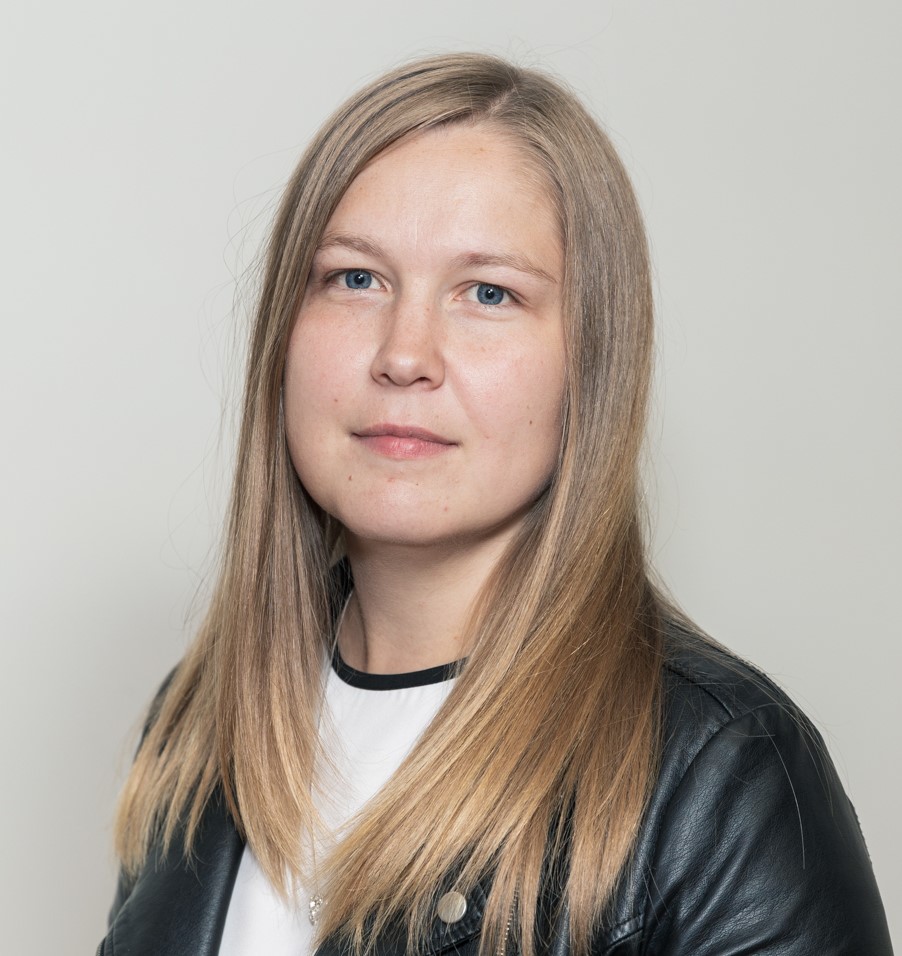 |
|
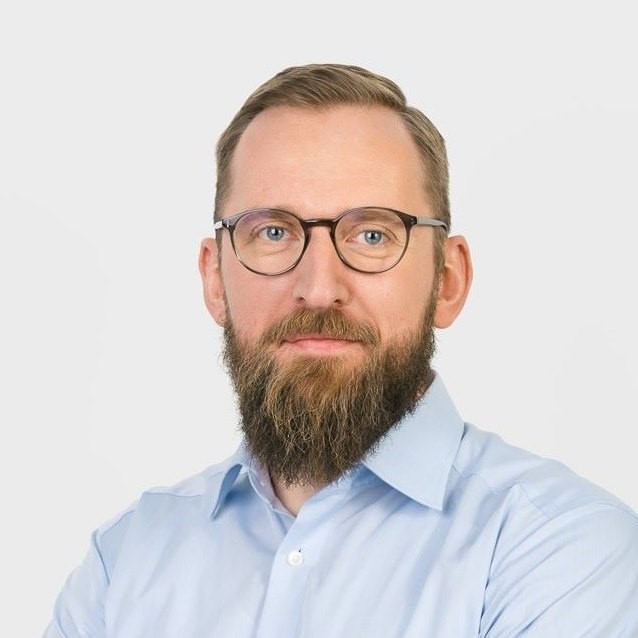 |
|
Dr.sc.ing. Arita Dubnika received her PhD in Chemistry Engineering in 2014. After finishing her PhD studies she conducted a one-year research study at Stanford University School of Medicine, USA. Dr.Dubnika has experience of national and international cooperation, currently, she is a work package leader in H2020 Project No. 857287 “BBCE” and Project No. 952347 “RISEus2”, a MC member and working group leader at COST Action Ocean4Biotech CA18238. A.Dubnika is also a coordinator for M.ERA.NET project “INJECT-BIO” and Fundamental and Applied Research is a programme project “MATRI-X”. She has participated as a performer/researcher in numerous national and international projects. Dr. Dubnika has supervised 12 Bachelor's, 5 Master, and 3 PhD Thesis and she is also involved in the RTU teaching
activities.
|
|
In 2014 Kristaps Klavins obtained a Ph.D. from the University of Natural Resources and Life Sciences – BOKU, Vienna, Austria. After finishing his Ph.D., he joined the company "Biocrates Life Sciences AG" as a Senior Scientist at the Department of Research and Development. In 2017 Kristaps Klavins joined CeMM - Research Centre for Molecular Medicine of the Austrian Academy of Sciences as Deputy Head of Proteomics and Metabolomics Facility. He was responsible for setting up and managing the metabolomics facility. In 2020 he received a Marie Skłodowska-Curie Individual Fellowship and joined Rudolfs Cimdins Riga Biomaterials Innovations and Development Centre at Riga Technical University. |
Ph.D. student: Karina Egle
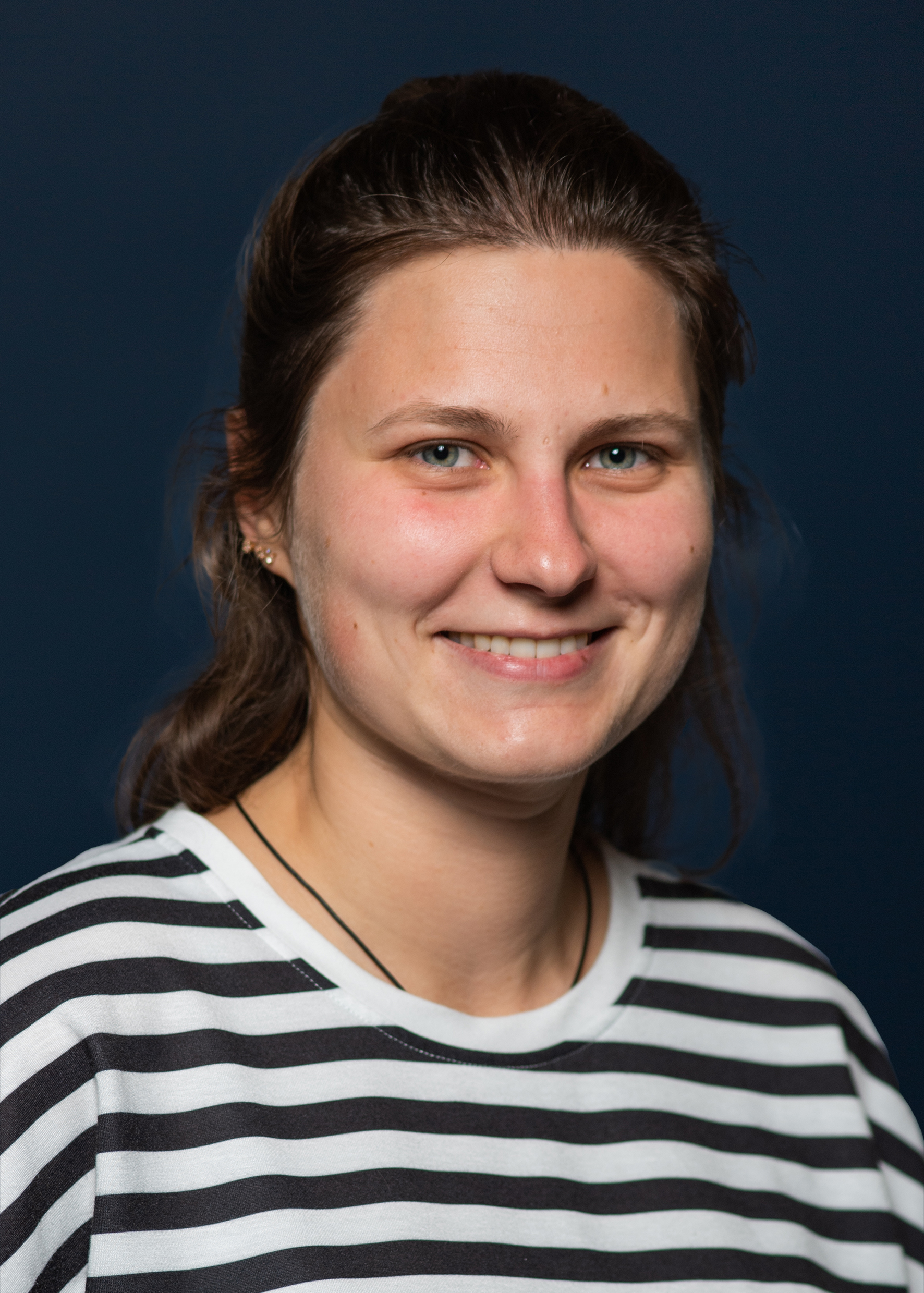
ORDIC ID: 0000-0002-0301-0824
Riga Technical University 4th year Ph.D. student in Doctoral program “Chemistry, Materials Science and Engineering”.
In 2017 got a bachelor degree and in 2020 got a master degree.
Works at RTU Rudolfs Cimdins Riga Biomaterials Innovations and Development Centre.
In BBCE works in the biomaterial research field while working on research “Development of autologous fibrin matrices for medical applications”.
Works on the fundamental and applied research project “Development of antibacterial autologous fibrin matrices in maxillofacial surgery (MATRI-X)”.
Ph.D. student: Jingzhi Fan
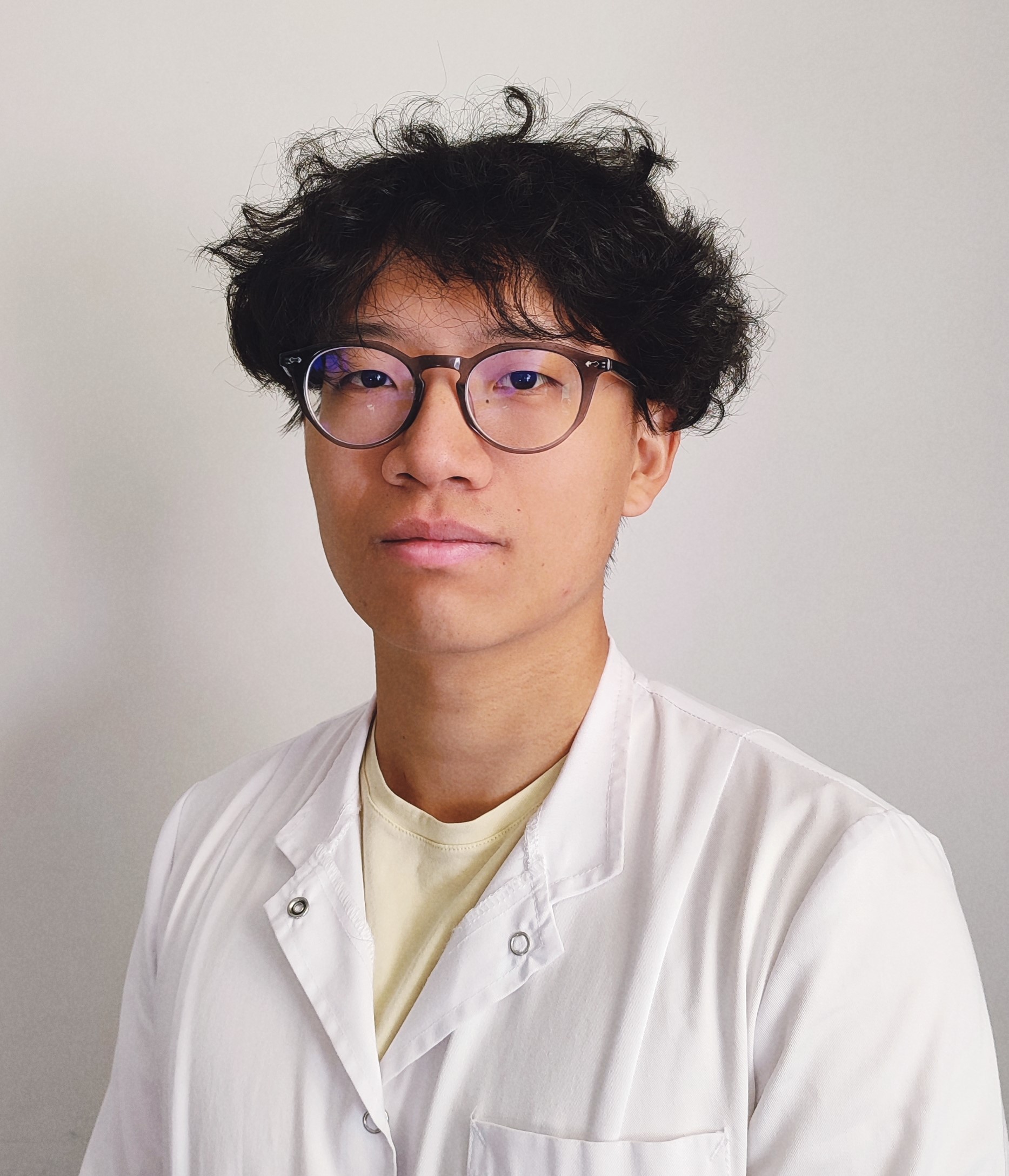
ORCID ID: 0000-0002-3736-0275
2014 – 2018 Bachelor's degree in Biomaterials, Beijing University of Chemical Technology;
2018 – 2019 Master’s degree in Materials Science and Engineering, University College Dublin;
2021. - Currently a Ph.D. student at Riga Technical University, Faculty of Chemistry, Material Science, and Engineering.
Jingzhi works on biomaterials development and in vitro evaluations. He also researches cell death, differentiation, functionalization, and immune regulation at the molecular level. The major studies are building the bridge between biomaterials and metabolomics.
Ph.D. student: Lauma Ievina
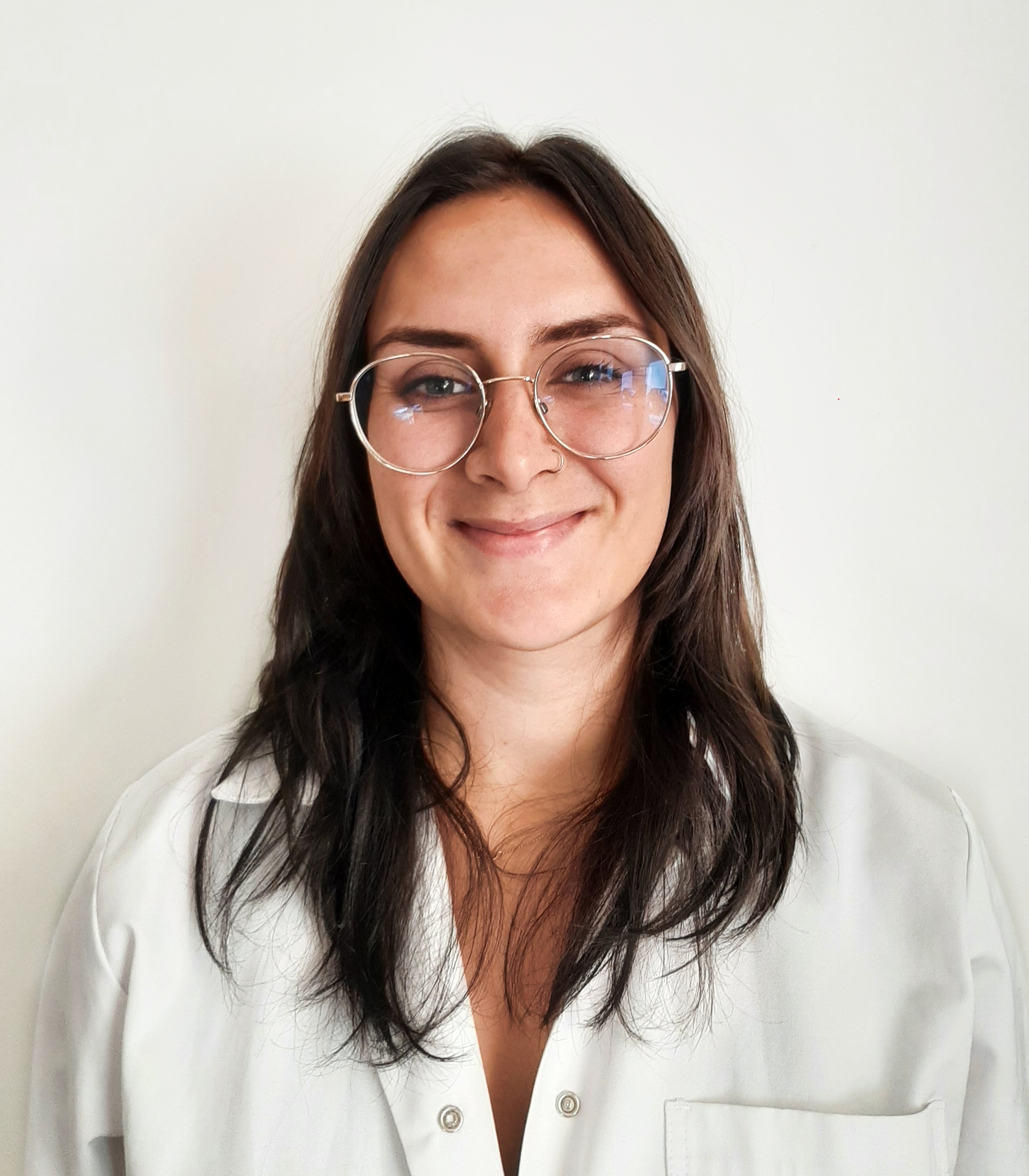
ORCID ID: 0000-0002-2016-4243
2020. Bachelor's degree in Physiotherapy at Riga Stradins University;
2023. Master's Degree in the field of "Biomedicine" with a specialization in immunology and virology at Riga Stradins University;
2023. - Currently a Ph.D. student at Riga Technical University, Faculty of Chemistry, Material Science, and Engineering.
IN BBCE works in the field of tissue regenerative materials. The main research focus is exploring the synergies between platelet-rich fibrin and biomaterials in maxillofacial surgical procedures.
Ph.D. student: Theresa Schiemer
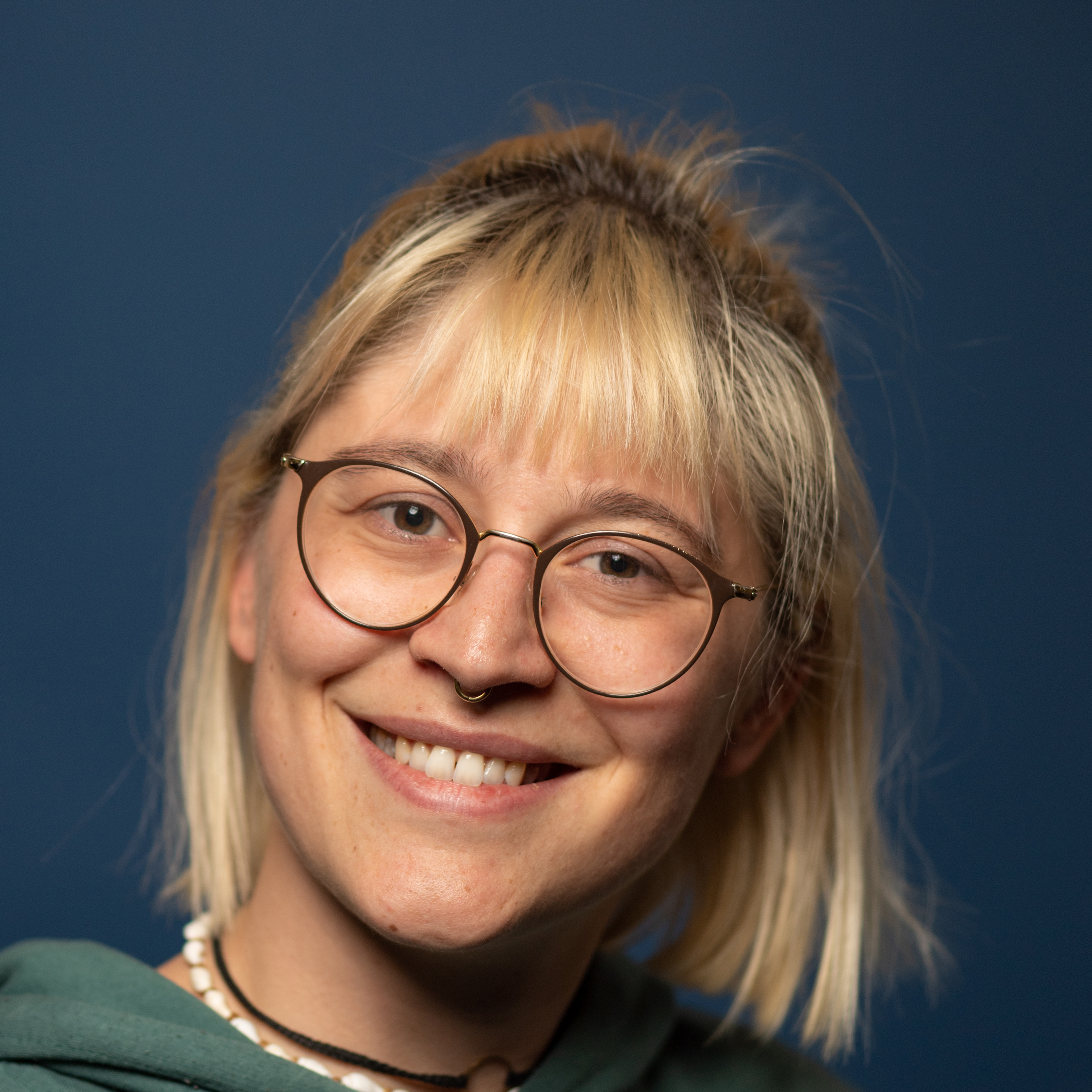
ORCID ID: 0009-0000-6508-0636
2019: Bachelor's degree in Molecular Medicine at Innsbruck Medical University. Working on B cell development;
2023: Master's degree in Molecular Medicine at Innsbruck Medical University. Working on a perfusion system for biomaterial testing;
2023: Currently a PhD student at Riga Technical University in Chemistry, Materials Science and Engineering.
Theresa works on the development of immunomodulatory biomaterials for bone regeneration. She focuses on macrophage physiology, immune responses and metabolomics.
Master's student: Liva Vita Kaufmane
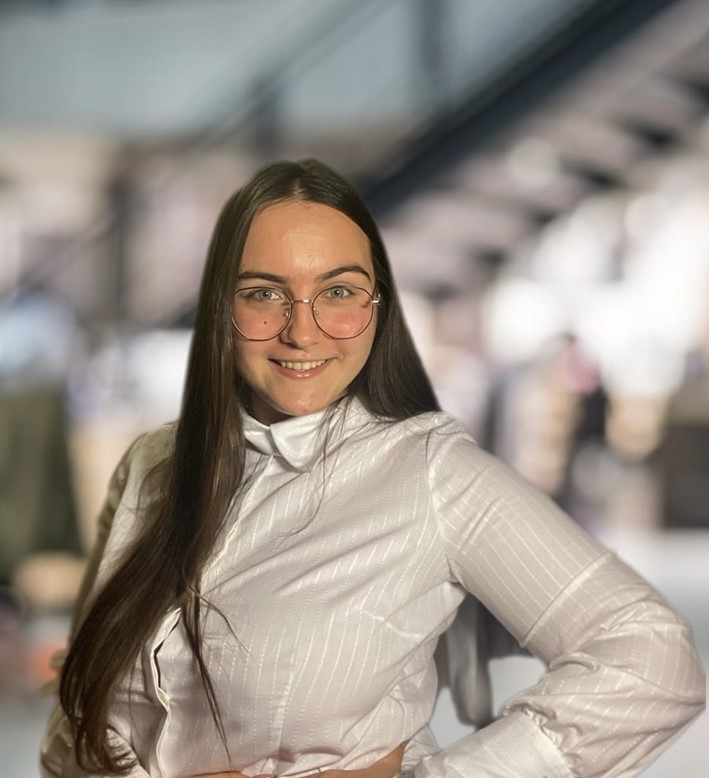 Master's student in the program "Biology-Molecular Biology" of the Faculty of Biology of the University of Latvia. Previously obtained a bachelor's degree in the program "Chemistry and chemical technology" of the Faculty of Materials Science and Applied Chemistry of the Riga Technical University. Work on bachelor's thesis "Development of the determination method for hyaluronic acid and polylysin based hydrogel influence on cell metabolism" was carried out in Rudolfs Cimdins Riga Biomaterials Innovations and Development Centre . Works at Rudolfs Cimdins Riga Biomaterials Innovations and Development Centre in the fields of molecular biology and biochemistry, continuing the work on investigating hydrogel influence on cell metabolism.
Master's student in the program "Biology-Molecular Biology" of the Faculty of Biology of the University of Latvia. Previously obtained a bachelor's degree in the program "Chemistry and chemical technology" of the Faculty of Materials Science and Applied Chemistry of the Riga Technical University. Work on bachelor's thesis "Development of the determination method for hyaluronic acid and polylysin based hydrogel influence on cell metabolism" was carried out in Rudolfs Cimdins Riga Biomaterials Innovations and Development Centre . Works at Rudolfs Cimdins Riga Biomaterials Innovations and Development Centre in the fields of molecular biology and biochemistry, continuing the work on investigating hydrogel influence on cell metabolism.
Bachelor's student: Elina Kelle
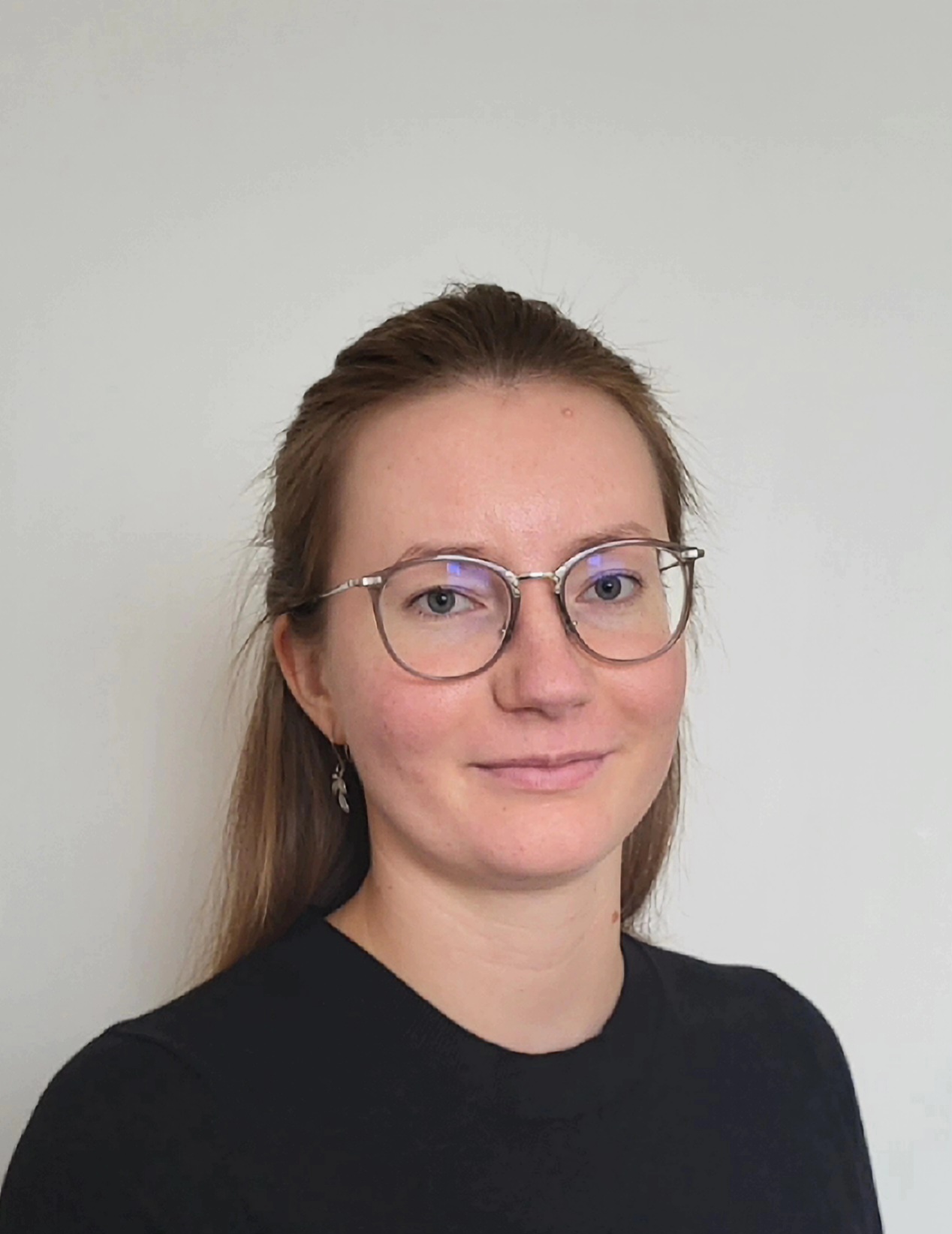
ORCID ID: 0000-0003-3598-6386
4th-year student at Riga Technical University in the study program “Chemistry and Chemical Technology”.
Works at Riga Technical University, Rudolfs Cimdins Riga Biomaterials Innovations and Development Centre on the fundamental and applied research project “Development of antibacterial autologous fibrin matrices in maxillofacial surgery (MATRI‑X)”.
In the BBCE project works in the field of biomaterials and on research “Development of silk fibroin and marine polysaccharide hydrogels”.
Bachelor's student: Nikola Gabriela Matusevica
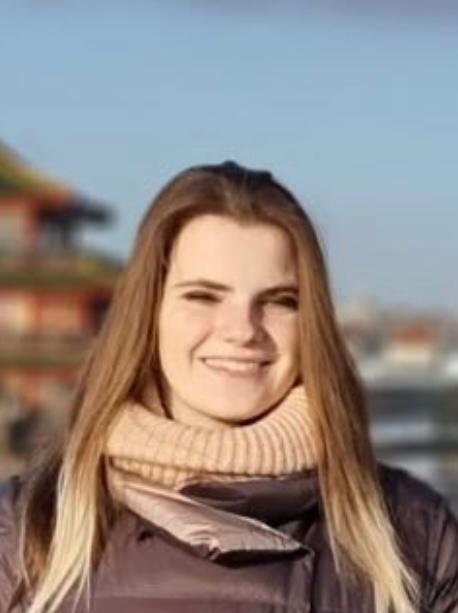
A third-year bachelor's student at Riga Technical University, studying in the field of Materials Science and Applied Chemistry within the program "Chemistry and Chemical Technology." Working as a Senior Laboratory Assistant in scientific research at the RTU Faculty of Materials Science and Applied Chemistry, General Chemical Technology Institute. Primary responsibilities include the management and supervision of liquid chromatography and mass spectrometry systems, as well as sample preparation and data processing. Additionally, actively involved in conducting sample measurements within the framework of projects and publications at BBCE.
Bachelor's student: Dana Galkina
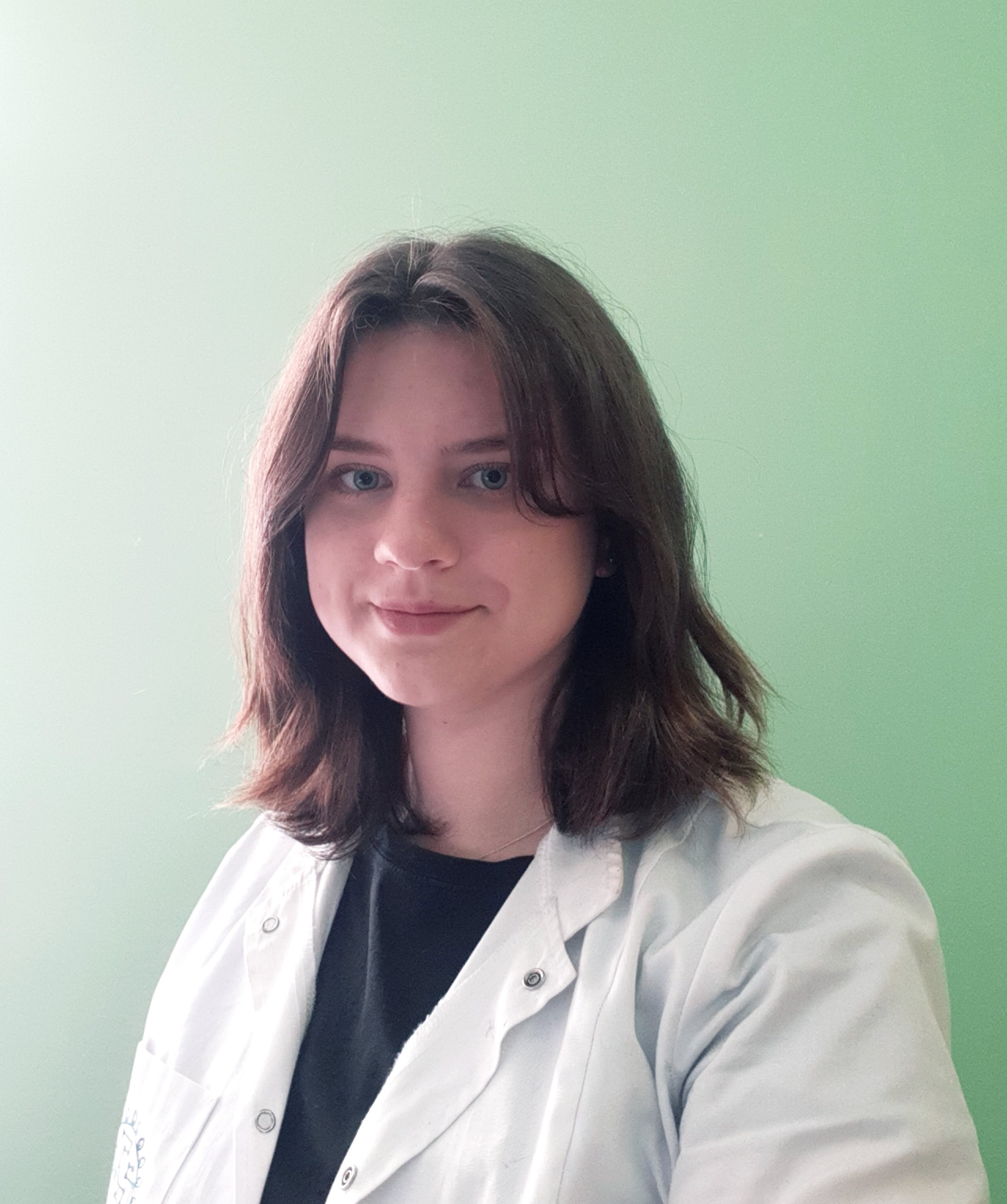
Bachelor's student at Riga Technical University.
Works are scientific project "Bioactive injectable hydrogels for soft tissue regeneration after reconstructive maxillofacial surgeries (INJECT-BIO)"
Some of the primary tasks include performing in-vitro studies, developing controlled drug release systems, and researching drug release.
Bachelor's student: Annija Vaska
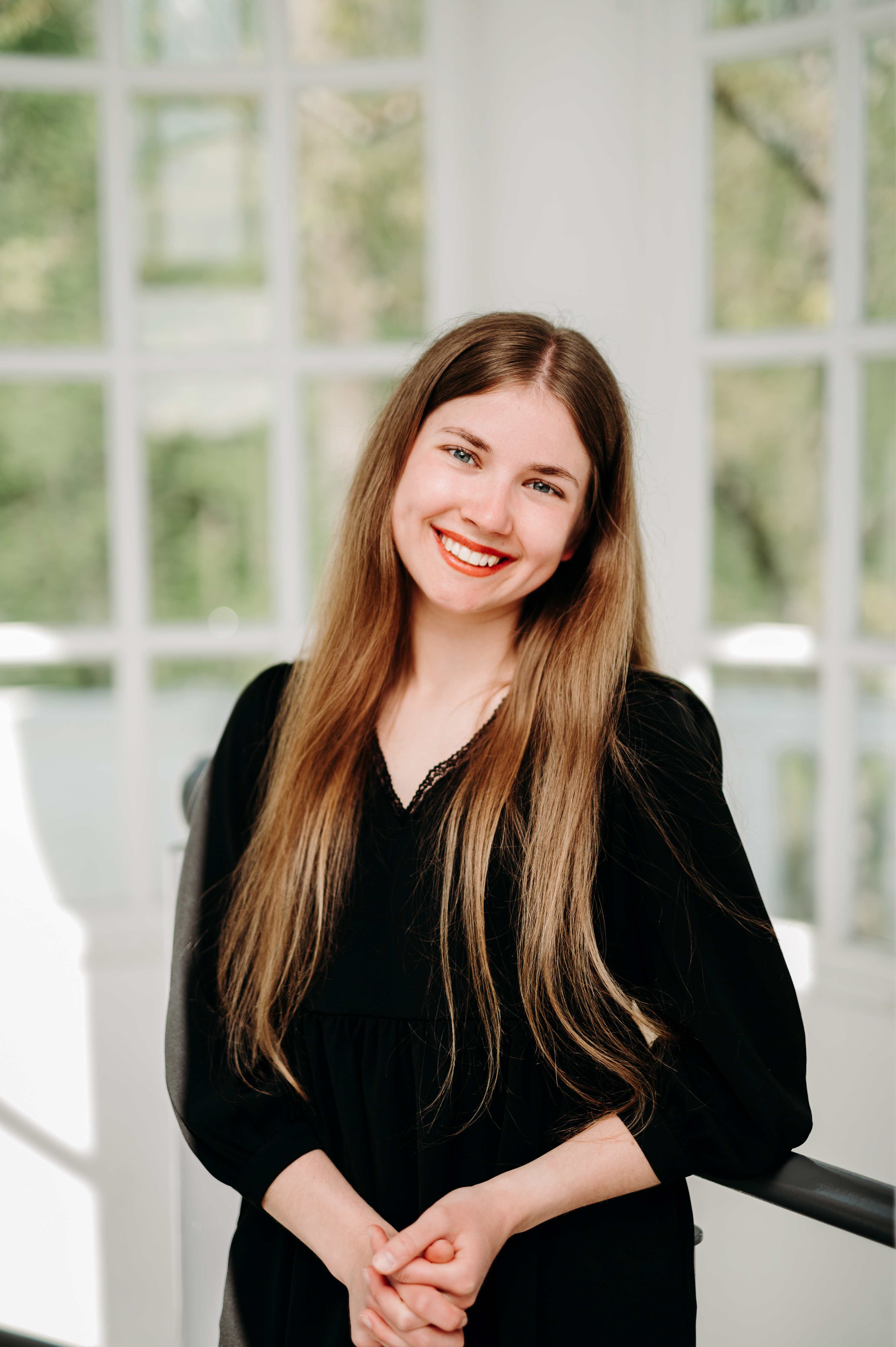
ORCID ID: 0000-0002-8724-6630
Bachelor's student in the program "Chemistry and chemical technology" of the Faculty of Materials Science and Applied Chemistry of the Riga Technical University. Identified future fields of activity - analytical chemistry and biochemistry. Works at Rudolfs Cimdins Riga Biomaterials Innovations and Development Centre, where her main competencies are the preparation of various biological samples (blood, feces, urine, etc.) for metabolite measurements, skills to work with analytical chemistry technique - liquid chromatography–mass spectrometry and mass spectrometry data analysis in the program Tracefinder.
Bachelor's student: Maksims Melnicuks
 4th-year student at Riga Technical University in the study program “Chemistry and Chemical Technology”. Works as a Senior Laboratory Assistant in scientific research at Riga Technical University, Institute of Biomaterials and Bioengineering. In the BBCE project works in the field of drug delivery systems and on research of the effect of collagen origin and crosslinking process on the properties of prepared hydrogels.
4th-year student at Riga Technical University in the study program “Chemistry and Chemical Technology”. Works as a Senior Laboratory Assistant in scientific research at Riga Technical University, Institute of Biomaterials and Bioengineering. In the BBCE project works in the field of drug delivery systems and on research of the effect of collagen origin and crosslinking process on the properties of prepared hydrogels.
BBCE project´s main objective is to establish a joint Baltic Biomaterials Centre of Excellence for advanced biomaterials development based on the long-term strategic cooperation between AO Research Institute Davos, Switzerland (ARI) and Friedrich-Alexander University of Erlangen-Nuremberg, Germany (FAU) on the one hand and RTU RBIDC, LIOS, RSU and RSU IS on the other hand.

